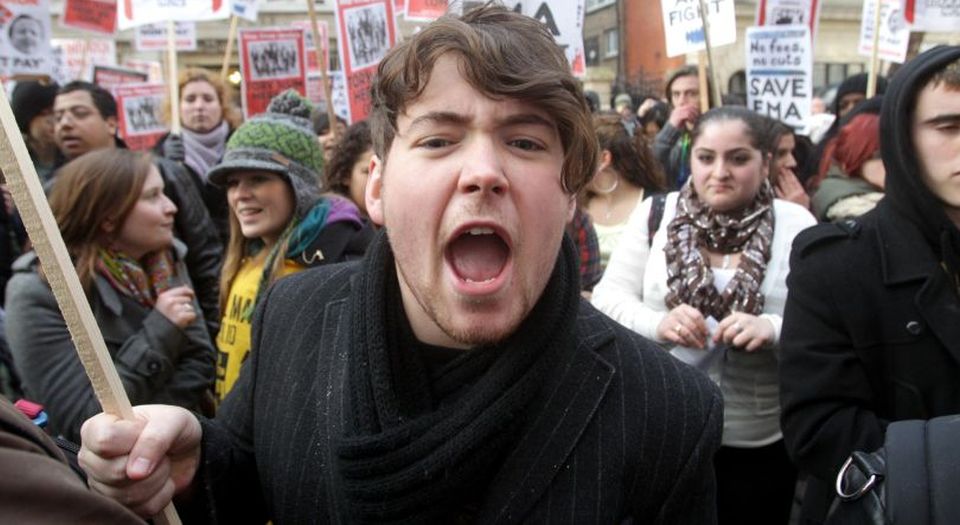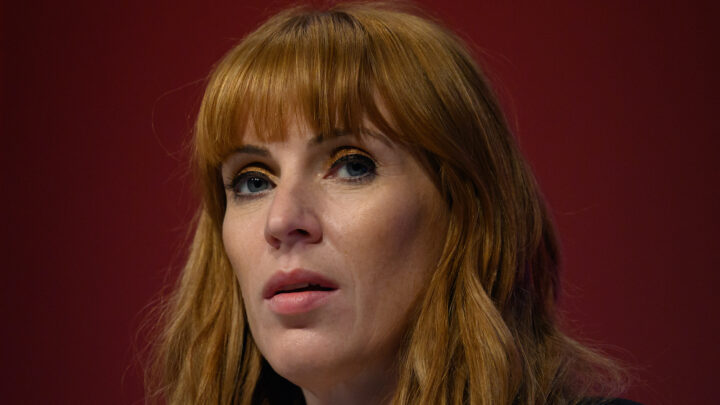Twentysomethings, call off the generational jihad
Tom Slater, 23, calls for an end to pity-me yoof politics.

In a move as unedifying as a lecture on housing from Natalie Bennett, the Labour Party is today expected to pledge to cut university tuition fees from £9,000 to £6,000 a year by tightening up on pension tax reliefs. It’s a canny, if predictable, move. Tuition fees, the scrapping of which was the great yoof-hugging pledge of the Liberal Democrats’ 2010 campaign, have become, for many, an explanation for young people’s disengagement from party politics. The Tory-led hike in tuition fees, which coalition partners the Lib Dems did little to stop, is often held up as the sole reason young people are estranged from and disillusioned with the Westminster process. Abandoned by one party, and then shafted by the other, young people, we’re told, have political trust issues that only targeted pledges like this will overcome.
Labour leader Ed Miliband, who is due to make the announcement in a speech in Leeds today, seems primed to exploit this put-upon-youth narrative: ‘What has happened over the past five years is more than just a betrayal of election promises, it is a betrayal of an entire generation: a betrayal from their first steps to the time when they stride into the world of work; a betrayal from nursery to school, from college to university, a betrayal on the jobs or homes they hope to have afterwards – and even on their ability to vote.’
This is divisive electioneering at its most bald, in a battle that is increasingly being drawn along generational lines. The Tories have firmly hitched their wagon to the so-called grey vote, pledging to maintain the ‘triple-lock’ on state-pension growth and the ringfencing of old-age benefits – the winter-fuel allowance, free bus passes, free TV licenses. This, combined with chancellor George Osborne’s commitment to cutting housing benefits to the under-25s, and the Lib Dems’ drain-circling irrelevancy as this government draws to a close, has left Britain’s youth as an untapped electoral resource.
A YouGov poll last year revealed that as little as 41 per cent of 17- to 21-year-olds (first-time voters) planned to vote in this election. And while life expectancies continue to grow and the force of the over-65s vote is fortified, statistics suggest that the young could cause a real upset if they could only be cajoled into turning up at the ballot box. As Polly Toynbee put it, ‘If they turn out, young voters can get Cameron out’ – an assertion borne out by statistics which show that, of the young people who plan to vote, over 40 per cent intend to vote Labour. Along with Miliband’s pledge for votes for 16-year-olds, his selfie-snapping tours around colleges and youth media, and his cringeworthy youth manifesto, it is clear that Labour is hoping to ride the disaffected young all the way to No10.
But there’s more to this than stat-weighing cynicism. Miliband, alongside the fresh-faced voters who will welcome today’s announcement, is responding to a broader political atmosphere in which generations are being pitted against one other. Since the onset of the recession, generational conflict has been ruthlessly inflamed by leftish commentators. Talk of a ‘jilted generation’, undone by the spendthrift ways of their shortsighted Baby Boomer forbears, has helped cast Britain’s youth as the pitiable victims of economic circumstance.
This is a narrative that now informs how millennials understand their own political estrangement. Rather than see politics as something they can shape, in line with their own ideas, aspirations and desires, they increasingly call for politics to be shaped around them. ‘We’re confused, we’re ill-informed, and – most of all – we’re ignored’, wrote one weepy young thing in the Telegraph recently.
This is all a crock. Generation, as a concept, is empty of any real political or sociological meaning. The fact that you are born within the same timespan says little about your shared prospects or political outlook. Generations contain multitudes – poor, rich, right-wing, left-wing, engaged, apathetic. A 20-year-old docker is likely to have far more in common with a retired docker than with the middle-class graduates who pen pity-me comment pieces for broadsheets.
At best, how we conceive of the younger generation serves as a metaphor for how we conceive of society’s prospects for the future. In times much harsher and contentious than these, the young have been seen as a motor of change and upheaval. ‘Bliss was it in that dawn to be alive, / But to be young was very heaven!’, wrote Wordsworth in the ecstatic wake of the French Revolution. But today, at a time when talk is only ever of how to best divide up the shrivelled economic cake, the young are seen as vulnerable and pitiable, rather than robust and transformative.
But as well as filling the comment pages with more twentysomething whining than any reasonable person could be expected to withstand, this generational jihad, as Fraser Nelson has dubbed it, only undermines the possibility of meaningful political progress. It destroys social solidarity, pitting the young against the old, in the name of a deeply individuated politics. One in which we silo ourselves into electoral age brackets rather than work to build a vision of the future for all.
At this General Election, young Britons must call for an end to the generational war being waged in their name. Politics is not just about you. It’s high time we remembered that.
Tom Slater is assistant editor at spiked. Follow him on Twitter: @Tom_Slater_
To enquire about republishing spiked’s content, a right to reply or to request a correction, please contact the managing editor, Viv Regan.









Comments
Want to join the conversation?
Only spiked supporters and patrons, who donate regularly to us, can comment on our articles.